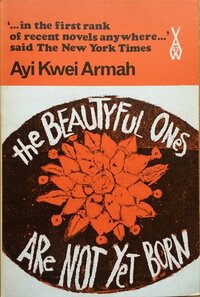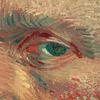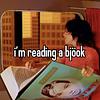Take a photo of a barcode or cover
love love love the abject, love its use here, will maybe do a project or something on gross things
challenging
dark
reflective
slow-paced
Plot or Character Driven:
A mix
Strong character development:
No
Loveable characters:
No
Diverse cast of characters:
No
Flaws of characters a main focus:
No
challenging
informative
reflective
slow-paced
Plot or Character Driven:
Character
Strong character development:
Complicated
Loveable characters:
Complicated
Diverse cast of characters:
Yes
Flaws of characters a main focus:
No
hopeful
informative
reflective
sad
slow-paced
Plot or Character Driven:
A mix
Strong character development:
No
Loveable characters:
No
Diverse cast of characters:
Yes
Flaws of characters a main focus:
Yes
reflective
slow-paced
Plot or Character Driven:
Character
Strong character development:
Yes
Loveable characters:
No
Diverse cast of characters:
No
Flaws of characters a main focus:
Yes
challenging
reflective
slow-paced
Plot or Character Driven:
Character
Strong character development:
No
Loveable characters:
No
Diverse cast of characters:
No
Flaws of characters a main focus:
No
This book is utter filth. Wait, it's not what you think.
The poverty and corruption of 1960s Ghana drips off every page with descriptions of every type of dirt and decay you can think of. Some of it is extremely nauseating with the scenes of the excrement encrusted and urine splattered latrines, banisters covered in bodily fluids, slimy vomit and the stench and smell of unsanitary conditions.
It shows the stark reality of the situation and is well written but it's not pleasant or easy to get through.
Added to that the plot is extremely slow moving and at times almost stops altogether to talk about the political situation and the post colonial society that is operating on bribes, deceit, misuse of power and corrupt officials.
The main character is referred to only as The Man. He's given no name and he wanders through his life of poverty working as a railway clerk and refuses to join in the bribe taking much to the disgust of his wife and friends.
The plot is more interesting later in the novel due to a coup. What danger awaits and will anything change when one regime replaces another?
I think my lack of understanding of the situation & culture in Ghana in the 60s didn't help me get into the novel but combining that with a slim, slow-moving filth covered plot meant that ultimately it wasn't a book for me even though I could appreciate the cultural & literary significance of its publication.
The poverty and corruption of 1960s Ghana drips off every page with descriptions of every type of dirt and decay you can think of. Some of it is extremely nauseating with the scenes of the excrement encrusted and urine splattered latrines, banisters covered in bodily fluids, slimy vomit and the stench and smell of unsanitary conditions.
It shows the stark reality of the situation and is well written but it's not pleasant or easy to get through.
Added to that the plot is extremely slow moving and at times almost stops altogether to talk about the political situation and the post colonial society that is operating on bribes, deceit, misuse of power and corrupt officials.
The main character is referred to only as The Man. He's given no name and he wanders through his life of poverty working as a railway clerk and refuses to join in the bribe taking much to the disgust of his wife and friends.
The plot is more interesting later in the novel due to a coup. What danger awaits and will anything change when one regime replaces another?
I think my lack of understanding of the situation & culture in Ghana in the 60s didn't help me get into the novel but combining that with a slim, slow-moving filth covered plot meant that ultimately it wasn't a book for me even though I could appreciate the cultural & literary significance of its publication.
" I don't feel any hope in me any more. I can see things, but I don't feel much. When you can see the end of things even in their beginnings there is no more hope, unless you want to pretend, or forget or get drunk or something."
The first time I read this book was when I was a kid and it was confusing and boring for me, so l dropped it. But, I have always been in love with the title of this book,so I decided to read it for my Popsugar Reading Challenge. I struggled through the first half of the book but when I got to the second half it became more interesting.
The book explores the theme of corruption in Ghana during Kwame Nkrumah's rule right after Ghana got her independence. Corruption is something every African is all too familiar with because it is neverending problem that we are still facing.
" One man, with the help of people who loved him and believed in him, had arrived at power and used it for himself".
Kwame Nkrumah was a nationalist who fought for Ghana's independence, his people believed in him and fought alongside him to be free from the white man. But, the independence, the people so desperately sought, was not all it was made out to be. The leaders who were entrusted to lead the nation and make it better place for everybody, as they promised their people, decided instead to amass the nation's wealth for themselves and generations of their families.
The people were disappointed because this time it was their black brothers who have turned against them.
Our protagonist whose name was never mentioned but was referred to throughout the book as "the man", tries to be a honest man, in a country where corruption was the order of the day. "In this times honesty could only be a social vice, for the one who chose to indulge in it nothing but a very hostile form of selfishness, a very perverse selfishness. He has to face resentment from his wife and mother-in law for refusing to take bribes at his job at a railway station. They believed that his honesty was the cause of their poverty.
"The Foolish ones are those who cannot live life the way it is lived by all around them, those who will stand by the flowing water and disapprove of the current. There is no other way, and the refusal to take the leap will help absolutely no one at any time".
This is a very important book and it's themes are still important till this day. How corruption have become a cankerworm eating into every aspect of our lives and how we hope and pray that every new leader will be the Messiah to save us all but we know within ourselves that there are just new thieves. "New men would take into their hands the power to steal the nation's riches and to use it for their own satisfaction. That of course was to be expected."
For the Popsugar Reading Challenge: A book in a different format than what you normally read(paperbacks).
The first time I read this book was when I was a kid and it was confusing and boring for me, so l dropped it. But, I have always been in love with the title of this book,so I decided to read it for my Popsugar Reading Challenge. I struggled through the first half of the book but when I got to the second half it became more interesting.
The book explores the theme of corruption in Ghana during Kwame Nkrumah's rule right after Ghana got her independence. Corruption is something every African is all too familiar with because it is neverending problem that we are still facing.
" One man, with the help of people who loved him and believed in him, had arrived at power and used it for himself".
Kwame Nkrumah was a nationalist who fought for Ghana's independence, his people believed in him and fought alongside him to be free from the white man. But, the independence, the people so desperately sought, was not all it was made out to be. The leaders who were entrusted to lead the nation and make it better place for everybody, as they promised their people, decided instead to amass the nation's wealth for themselves and generations of their families.
The people were disappointed because this time it was their black brothers who have turned against them.
Our protagonist whose name was never mentioned but was referred to throughout the book as "the man", tries to be a honest man, in a country where corruption was the order of the day. "In this times honesty could only be a social vice, for the one who chose to indulge in it nothing but a very hostile form of selfishness, a very perverse selfishness. He has to face resentment from his wife and mother-in law for refusing to take bribes at his job at a railway station. They believed that his honesty was the cause of their poverty.
"The Foolish ones are those who cannot live life the way it is lived by all around them, those who will stand by the flowing water and disapprove of the current. There is no other way, and the refusal to take the leap will help absolutely no one at any time".
This is a very important book and it's themes are still important till this day. How corruption have become a cankerworm eating into every aspect of our lives and how we hope and pray that every new leader will be the Messiah to save us all but we know within ourselves that there are just new thieves. "New men would take into their hands the power to steal the nation's riches and to use it for their own satisfaction. That of course was to be expected."
For the Popsugar Reading Challenge: A book in a different format than what you normally read(paperbacks).
Oof. I was so, so excited to read this book because:
1) it's by a Ghanaian author writing in a freshly post-colonial reality
2) it's a scathing critique of Nkrumah's Ghana
3) everybody says that this is up there with Achebe's 'Things Fall Apart' as one of the best African novels ever.
I was quite disappointed. It's interesting, don't get me wrong. The repeated images of dirt, filth, dilapidation and overall "shit" (for want of a more direct term) as a sustained metaphor to drive home the moral corruption of Ghana under Nkrumah is fantastic. It's just such a slog to read. I really did not care for any of the characters. I didn't care about the plot. The writing is beautifully descriptive at times, but then wades through dense commentary that makes the reading experience so staccato and draining.
Rating: 2.1/5
1) it's by a Ghanaian author writing in a freshly post-colonial reality
2) it's a scathing critique of Nkrumah's Ghana
3) everybody says that this is up there with Achebe's 'Things Fall Apart' as one of the best African novels ever.
I was quite disappointed. It's interesting, don't get me wrong. The repeated images of dirt, filth, dilapidation and overall "shit" (for want of a more direct term) as a sustained metaphor to drive home the moral corruption of Ghana under Nkrumah is fantastic. It's just such a slog to read. I really did not care for any of the characters. I didn't care about the plot. The writing is beautifully descriptive at times, but then wades through dense commentary that makes the reading experience so staccato and draining.
Rating: 2.1/5
reflective
sad
slow-paced
Plot or Character Driven:
Character
Strong character development:
No
Loveable characters:
Complicated
Diverse cast of characters:
Yes
Flaws of characters a main focus:
Complicated
slow-paced








